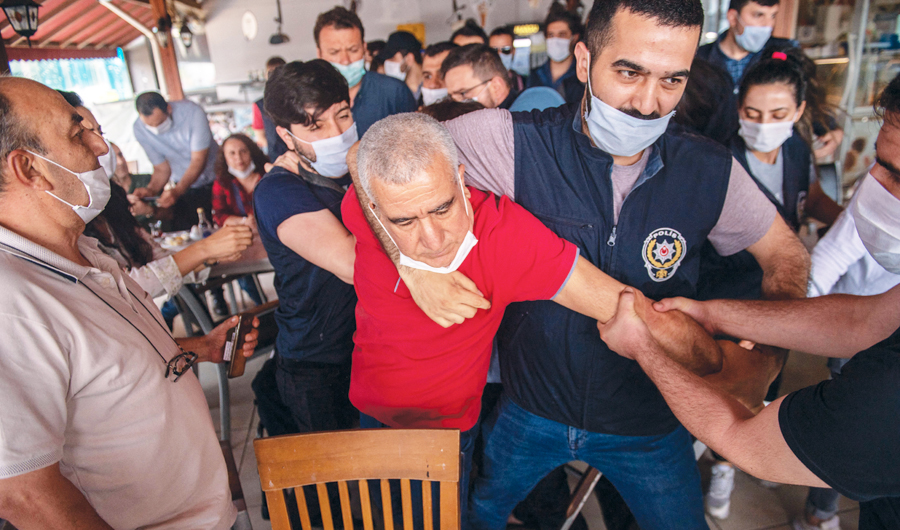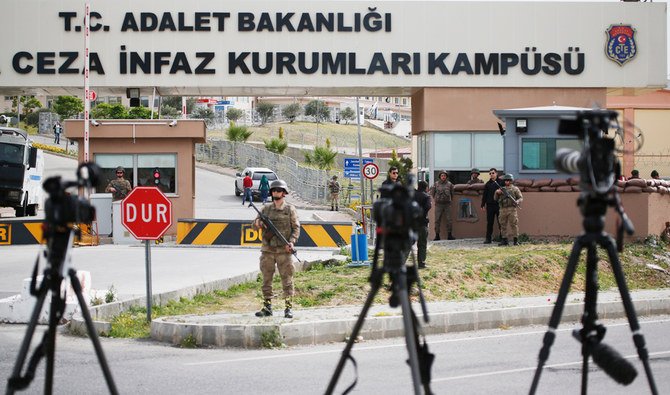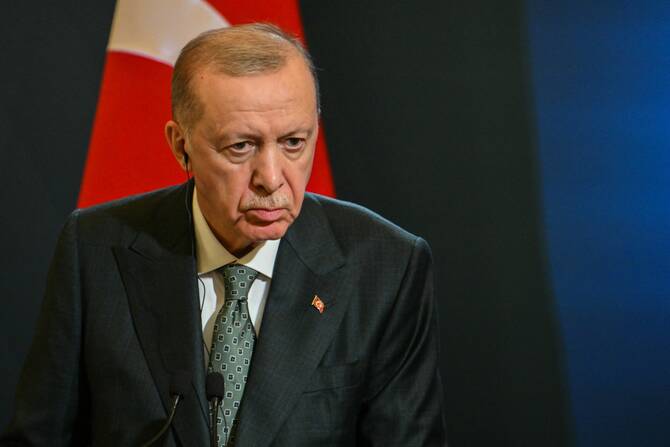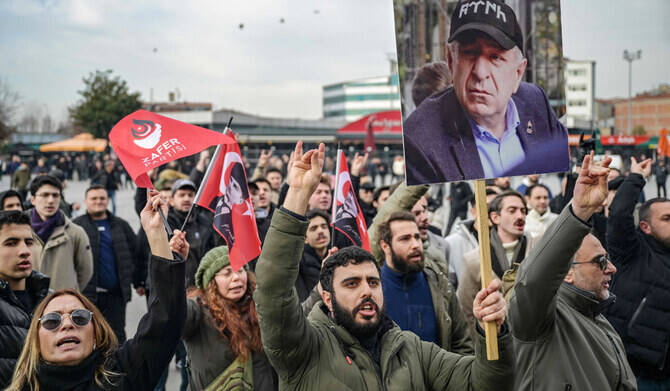ISTANBUL: Turkey has been ranked first among member states of the Council of Europe (CoE) for its annual incarceration rate, with a record number of inmates convicted for terrorism offenses.
Last year, the Turkish parliament adopted a controversial law to release about 45,000 prisoners to ease overcrowding in prisons and protect detainees from the pandemic.
However, the amnesty law was found to be politically biased as several drug dealers and mafia bosses were released while dissident journalists and politicians were excluded.
The Council of Europe released its Annual Penal Statistics report on Thursday: Turkey topped the list with an incarceration rate of 357.2 inmates per 100,000 inhabitants.
Turkey was followed by Russia, Georgia, Lithuania and Azerbaijan in the report.

Turkish police arrest a man during a recent protest in Istanbul. (AFP)
According to the report, about 300,000 people, including pre-trial detainees, are behind bars in Turkey — second only to Russia.
Based on the ratio of the number of inmates to the number of places available in penal institutions, Turkish prisons were also found to be the most overcrowded in the CoE report, with 127 inmates per 100 available places. Turkey was followed by Italy in the report.
Of 30,524 prisoners convicted for terror charges in the European continent, the majority of them — 29,827 people — were found in Turkey alone. Terrorism offenses are broadly defined in Turkish laws under which dissident activities such as attending demonstrations and exercising critical journalism are punished; disregarding European Court of Human Rights’ judgments.
The Council of Europe has repeatedly demanded that Ankara immediately release from prison the prominent businessman and activist, Osman Kavala, and the Kurdish politician, Selahattin Demirtas, after their years-long detention based on political motives.
The country also has Europe’s second largest prison population, at 297,019, after Russia. Over the past decade, the imprisonment rate in Turkey has increased by 115.3 percent.
Separately, the ruling Justice and Development Party (AKP) is working on legal amendments to digitally record and retain all visits to inmates for a period of one year — a move that has been criticized by the opposition as a serious invasion of prisoners’ privacy.
Opposition deputies have called on the AKP to withdraw its controversial bill, saying inmates’ private lives need to be protected.
Turkish penitentiary institutions made headlines recently after opposition party claims about the use of unlawful strip-searching of women as a degrading practice.






















